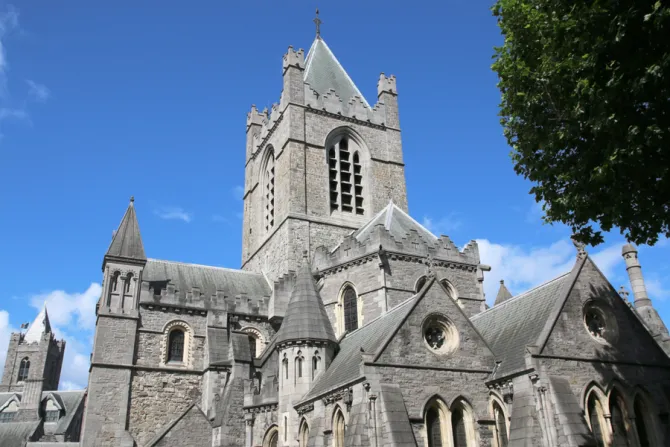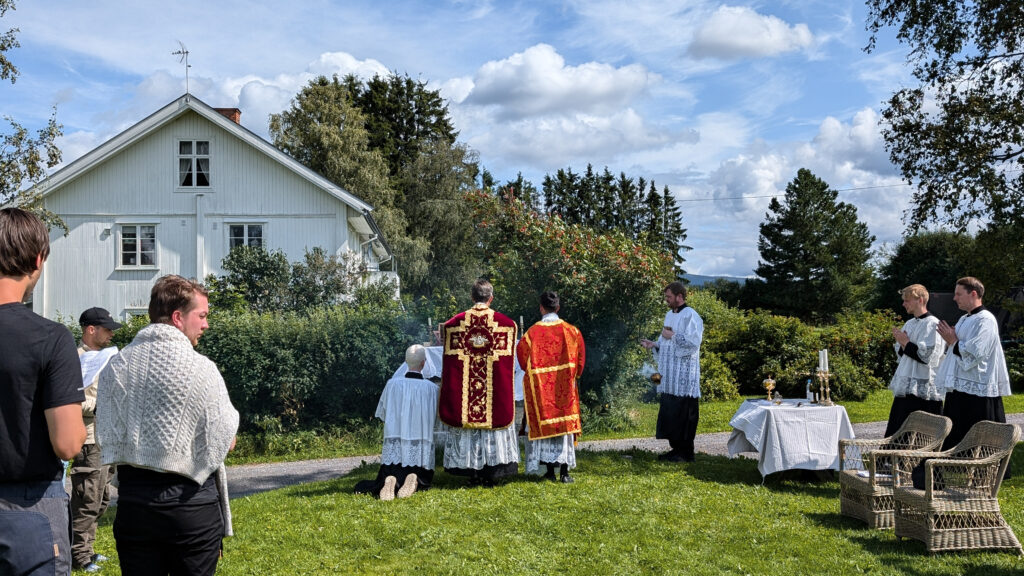Irish bishops decry assisted suicide proposal as ‘a failure of hope’
By Jonah McKeown
The Catholic bishops of Ireland on Monday issued a statement laying out the Church’s teaching on end-of-life issues and advocating for palliative care amid a push by Irish politicians to introduce legislation to legalize assisted suicide.
“We believe that every person who is seriously ill, together with all those who are concerned with his or her care, however difficult the circumstances, is held in the unconditional love of God,” the bishops noted.
“By legislating for assisted suicide or euthanasia, the State would contribute to undermining the confidence of people who are terminally ill, who want to be cared for and want to live life as fully as possible until death naturally comes.”
The Catholic Church has long supported, in the face of terminal illness, palliative care, which involves the holistic management of a person’s suffering. Assisted suicide and euthanasia — which both involve the intentional taking of life — are never permissible under Catholic teaching, though the withholding “extraordinary means” of medical treatment and allowing death to occur naturally can be morally permissible.
Noting that patient “autonomy” is often cited as a reason to pass assisted suicide legislation, the Irish bishops said taking a patient’s life also takes away their autonomy and “cuts off any prospect of growth or healing and represents a failure of hope.” Instead of assisted suicide, palliative care services need to be made more widely available in hospitals and hospices and in the community, the bishops recommended.
A March 2024 report produced by a committee of the Oireachtas, or Irish Parliament, recommended that the government introduce legislation to legalize assisted suicide “in certain restricted circumstances” and with safeguards in place to avoid coercion. Under the recommendations, adults suffering with an “incurable and irreversible” condition with between six and 12 months to live could request assisted suicide, which would be done in the presence of a medical professional.
In response to the report, the country’s bishops reiterated that “whatever the circumstances, the deliberate taking of human life, especially by those whose vocation is to care for it, undermines a fundamental principle of civilized society, namely that no person can lawfully take the life of another.”
In addition, the intellectually disabled would be particularly vulnerable under such a law, the bishops warned, pointing to countries such as Canada where serious efforts are being made to expand the provision of assisted suicide to those who are mentally ill.
Asking medical professionals to oversee assisted suicides would “radically undermine the ethos of health care.”
“Whenever we place health care professionals under pressure to participate, either directly or by referral, in an act that they themselves believe to be fundamentally immoral, we treat them as mindless functionaries. This does untold damage to the integrity of health care in Ireland and removes the human person as its primary focus,” the bishops concluded.
“In our culture, we rightly hold doctors and nurses in high esteem because they are presumed always to be at the service of life, for as long as their patient lives. We call on Catholics to stand firmly in support of nurses and doctors who stand for life. One day it may be your life.”
Pope Francis has said that “authentic palliative care is radically different from euthanasia, which is never a source of hope or genuine concern for the sick and dying.”
Assisted suicide and euthanasia have been legalized in recent decades countries such as Canada, Australia, Spain, Belgium, and in multiple U.S. states, permitting patients to take their own lives or allowing doctors to kill them outright. In some of those countries, patients can request assisted suicide even if they are not suffering from a fatal affliction.
https://d76618f6db5f7495708307227ef4203e.safeframe.googlesyndication.com/safeframe/1-0-40/html/container.html Ireland’s bishops have spoken out against assisted suicide proposals before. In 2021, they described a proposal to legalize assisted suicide, the Dying with Dignity Bill, as being “at odds with the common good” and “fundamentally flawed.”
The Royal College of Physicians of Ireland — the largest doctor’s group in the country — in 2023 also came out against assisted suicide, with a group representative saying the practice was “contrary to best medical practice” and that “the potential harms outweigh the arguments that can be made in favor” of it.
In the nearby U.K., proposals to legalize assisted suicide in recent years have been consistently rejected by lawmakers. The practice is illegal in England and Wales, and doctors who assist a suicide can be jailed up to 14 years under the Suicide Act 1961.
In October 2022 a bill to legalize assisted suicide in England and Wales was ultimately not taken to a vote after seven hours of debate and impassioned opposition in the House of Lords.




